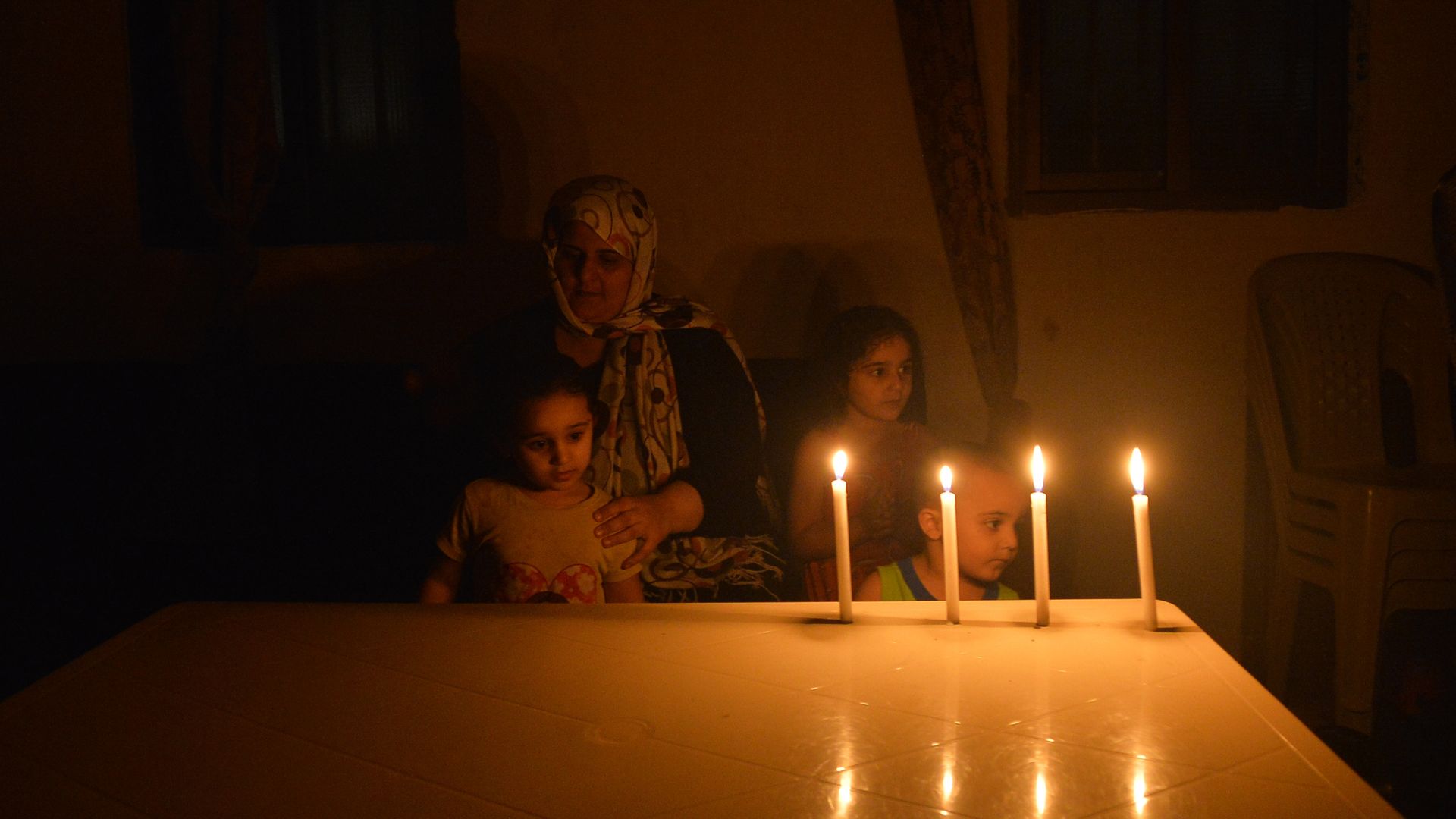Jun 30, 2021 - Politics & Policy
UNICEF: Children are "bearing the brunt" of Lebanon crisis
Add Axios as your preferred source to
see more of our stories on Google.

People spend time in the dark during power cuts due to fuel shortages in Beirut, Lebanon on June 29, 2021. While electricity is given to the capital Beirut for six hours a day, it can be given to other regions for four hours. Street lights were also not working due to power cuts in the capital. Photo: Houssam Shbaro/Anadolu Agency via Getty Images
